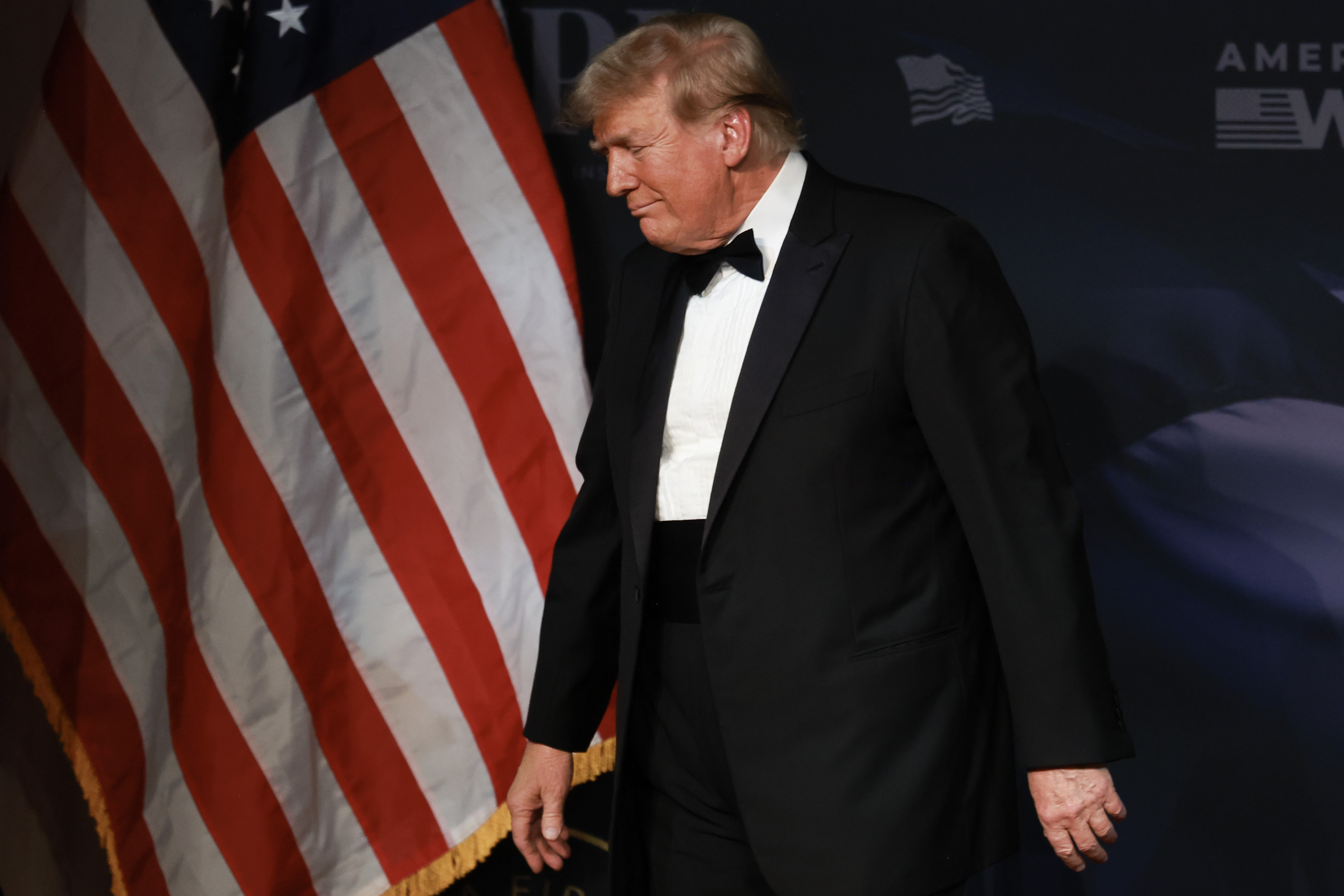A lawsuit launched from a small Texas town is taking aim at Adam Corolla and the future of podcasting, inspiring Dallas Mavericks owner Mark Cuban and others to call on Congress for help.
In January, a company called Personal Audio, of Beaumont, Texas, filed suit against Ace Broadcasting, the people behind "The Adam Carolla Show" podcast, alleging an infringement of its "Podcasting Patent."
If Personal Audio wins, some fear that it could mean the end of podcasting for anyone who can't afford to pay licensing fees.
Founded in 1996, Personal Audio has never produced a single product. But the company owns a patent that it says includes a vital contribution to podcasting technology and claims that Adam Carolla, HowStuffWorks.com and Togi Entertainment have infringed it.
Critics say Personal Audio is the perfect example of a patent troll, a company that does nothing but make money off patent litigation, which in turn, say critics, stifles innovation. Congress is now considering the SHIELD Act, legislation designed to curb patent trolls.
James Logan, one of Personal Audio's founders, has been an inventor and entrepreneur for four decades. He says he and his partners originally set out to develop what is now known as an MP3 player.
"We filed the original description in 1996, this 60-page description of this product we were working on," Logan said during a recent phone interview. "Out of that we spun off six patent applications."
Of the original six filings, Personal Audio was eventually granted three patents. In 2011, the company won an $8 million judgment against Apple for infringement of patents for downloadable playlists. A second suit against Apple was filed the following month but was dismissed by a judge.
Last year, Personal Audio was granted a patent for a "system for disseminating media content representing episodes in a serialized sequence." The new patent was built upon patents originally applied for in 1996 and 2001. The company believes the patent essentially patents podcasting technology, and is now using it to go after prominent podcasters.
Like the earlier suit against Apple, the case against Carolla doesn't really fit the classic profile of a patent troll — patent trolls usually target smaller players who can't afford to litigate the case and settle quickly. Logan says he and his partners targeted Carolla in part because the comedian "takes great pains to point out that he's the biggest podcaster."
U.S. & World
Podcasters across cyberspace have been rallying their fans and linking to an open letter to Congress signed by Cuban and others, urging them to pass The Saving High-tech Innovators from Egregious Legal Disputes (SHIELD) Act, legislation designed to curb patent trolls.
"It is targeting a very real problem, patent trolls, but in particular what I think of as bottom-feeder trolls, or as somebody else referred to them, 'smash-n-grab trolls,'" said Mark Lemley, a Stanford law professor and expert in intellectual property and patent law. "People that are not actually interested in winning their case, but know it costs a lot of money to defend a case and are interested in a small value nuisance settlement."
Cuban, the founder of Broadcast.com, has taken a personal stake in the fight against patent trolls. He donated $500,000 in December to the Electronic Frontier Foundation to endow the Mark Cuban Chair to Eliminate Stupid Patents. The EFF named staff attorney Julie Samuels to the position.
Samuels said that the SHIELD Act, which was originally introduced last August and was referred to committee on Feb. 27, is not just about Personal Audio.
"What the bill does is it attacks the ecosystem in which the trolls have really thrived," she said. "It's about this much broader, scary trend, that's frankly bad for our country and bad for our economy and bad for innovation in general."
Though Personal Audio's suit against Carolla has been a boon to the SHIELD Act's profile, it's not clear the law would even define Personal Audio as a troll.
Under SHIELD, three factors would protect you from being classified as a patent troll: If you're a university; you can prove that you invented or were somehow involved with the invention that is part of the patent; or you somehow exploit the patent in some way other than just licensing, by making something or selling something.
Personal Audio could argue that it falls in the second category. It would have to convince a judge that podcasting would not be possible without the technology outlined in its patent.
If a court determines a plaintiff such as Personal Audio is a troll, the judge can require them to post a bond to cover the legal fees for the other side if they should lose. This "loser pays" system is designed to dissuade trolls from bringing frivolous suits.
Personal Audio's Logan says SHIELD doesn't sound like "a very clever way to solve the problem."
"Why should a patent have different rights or privileges because one person owns it versus somebody else?" Logan asks. "First we're going to define you as a certain type of person, then we're going to put lawsuits into different categories, and this type is going to have to pay legal fees?"
For Samuels, there's a key difference: Unlike a product like a pencil, a single idea can be used simultaneously by more than one person.
"What we've seen is that some of these individuals who are getting their hands on patents are using them simply to make a bunch of money, and it's not incentivizing more innovation or new invention," she said.
Some consider Personal Audio a patent troll simply because of its location. The company and suit are based in the Eastern District of Texas, which is long renowned for being fast-moving in intellectual property cases and often characterized as being pro-plaintiff in them, making it a natural venue for patent trolls.
"There are certain venues that are better to file in if you’re the plaintiff than others," Logan said when asked why his company filed suit in the Eastern District.
Logan said that his case against Apple made it to court in just two years, whereas in most districts it could take at least twice as long. And given the number of lawyers and technical experts needed to try an intellectual property case, time really is money.
"Every time the judge took a bathroom break, it's costing like $12,000 worth of legal fees," Logan joked.
Logan and Samuels agree that the patent system is a mess, and while Stanford's Lemley appreciates SHIELD's goals, he has concerns about unintended consequences.
"What we don’t know is how it will affect the market," he said. "There are companies that are actually in the business of financing patent enforcement litigation. You might even imagine anti-infringement insurance developing... I think at this point we don’t really know what's going to happen."



